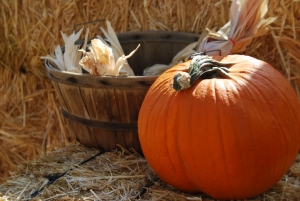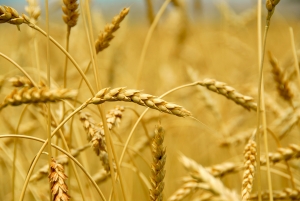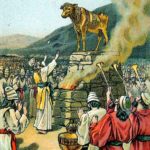Thanksgiving Day And Speculative Fiction
 A couple years ago, I wrote an article reflecting on how holidays and celebrations deepen the worldbuilding in speculative fiction. Today I’d like to think specifically about Thanksgiving.
A couple years ago, I wrote an article reflecting on how holidays and celebrations deepen the worldbuilding in speculative fiction. Today I’d like to think specifically about Thanksgiving.
I know a declared Thanksgiving Day is not a universal holiday. Canadians, for example, celebrate Thanksgiving on a different day than we do in the US, and many countries don’t have a specific Thanksgiving Day. Harvest Festivals are a different story.
Places as diverse as Australia, Egypt, Barbados, India, Korea, Portugal, Greece, and China have harvest festivals, either locally or nationally.
So what about the worlds in speculative fiction?
I can understand why dystopian and/or post-apocalyptic fantasy might not include Thanksgiving Day. Along with the death of much of civilization, celebrations such as Thanksgiving might become a think of the past.
In many respects, we’re witnessing in the US the change in the Thanksgiving Day celebration from a major holiday to a minor one. The presence of Thanksgiving or harvest day celebrations seem more apt to be important to a culture if the people are in tune with the growth cycle. As our urban society has become divorced from the way food gets to our table, we seem less thankful and more inclined to take for granted the food we eat.
As a result, Thanksgiving Day is losing its specialness. For instance, most fast food places remain open on Thanksgiving Day, as do a good number of restaurants and grocery stores. In the past few years, “black Friday”—the day after Thanksgiving when retail stores slashed their prices to induce consumers to begin their Christmas shopping in earnest—has gone from “open at midnight” to “open on Thanksgiving Day at 6” or 5 or whenever the businesses think they can woo people out of their homes.
Add in the fact that football has become an integral part of the celebration so that it’s reduced to Food, Family, and Football, and fewer people are commemorating the holiday as a day to give thanks.
Even my church which has a rich tradition of celebrating Thanksgiving, including decades when we held a service in the morning on Thanksgiving Day, didn’t so much as sing a single Thanksgiving hymn this year or focus the sermon on what the Bible says about Thanksgiving.
All that to say, if Thanksgiving is fading before our very eyes as a major holiday, it’s understandable that worlds set in the future, especially if that future is bleak or dominated by a heavy-handed, perhaps Godless, government, would be less inclined to have a Thanksgiving or harvest day celebration.
 On the other hand, if these futuristic societies are a return to a more agrarian way of life or if the world of an epic fantasy has a rural setting in which people are dependent upon cultivating the soil and growing their own food, then perhaps a harvest festival would be appropriate.
On the other hand, if these futuristic societies are a return to a more agrarian way of life or if the world of an epic fantasy has a rural setting in which people are dependent upon cultivating the soil and growing their own food, then perhaps a harvest festival would be appropriate.
In speculative literature, then, Thanksgiving can be much more than just a celebration. Whether or not a story world holds harvest festivals and how they are celebrated can define a culture and make it come alive.
Does this place recognize God as sovereign over the provision of daily food? Are there gods, with one particular god controlling fertile soil and sun and rain? Or are each of those under the purview of a different god? Must they all three be in agreement if the harvest is to be plentiful? How do the people express their thanks for what they receive?
Or is this world self-sufficient and so advanced in their technology that they can make the skies pour rain at their command? Perhaps they’ve put all food growth inside in the equivalent of gigantic greenhouses, and they have no understanding of nature being independent of humankind’s manipulation.
In such a culture, sentient beings, then, would think of themselves as gods. They might have forgotten the one true God, living with no thought other than meeting their own needs and pleasures. In their eyes, they are the highest authority, the ones in charge.
All these varied storyworlds and the peculiarities of their cultures can be established by the presence or absence of a Thanksgiving Day or harvest day celebration. Such a brief holiday, easily over looked and yet as full of potential in fiction as in real life.











































